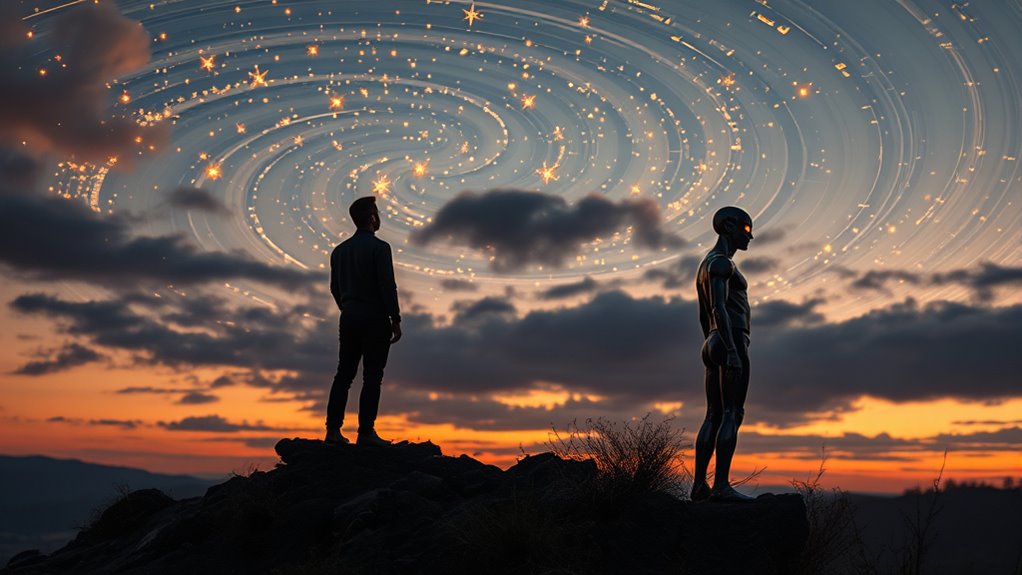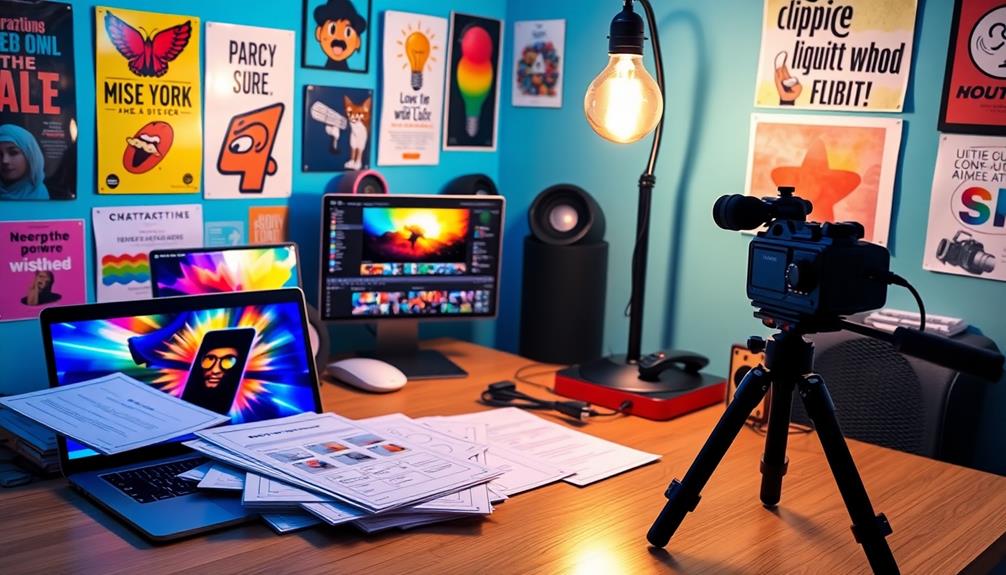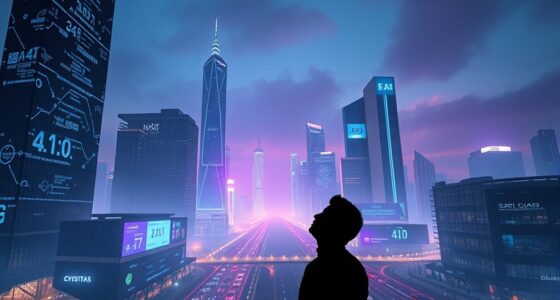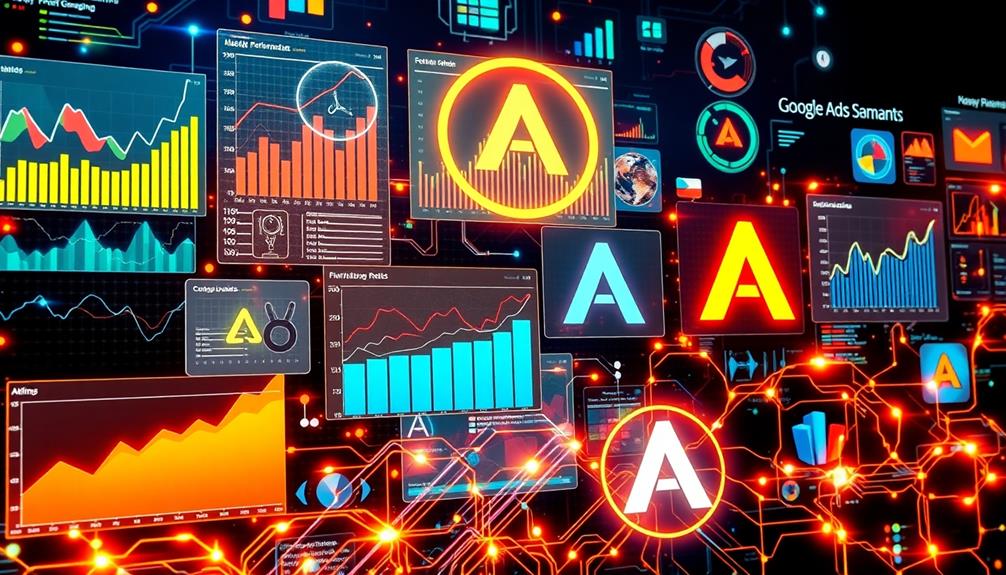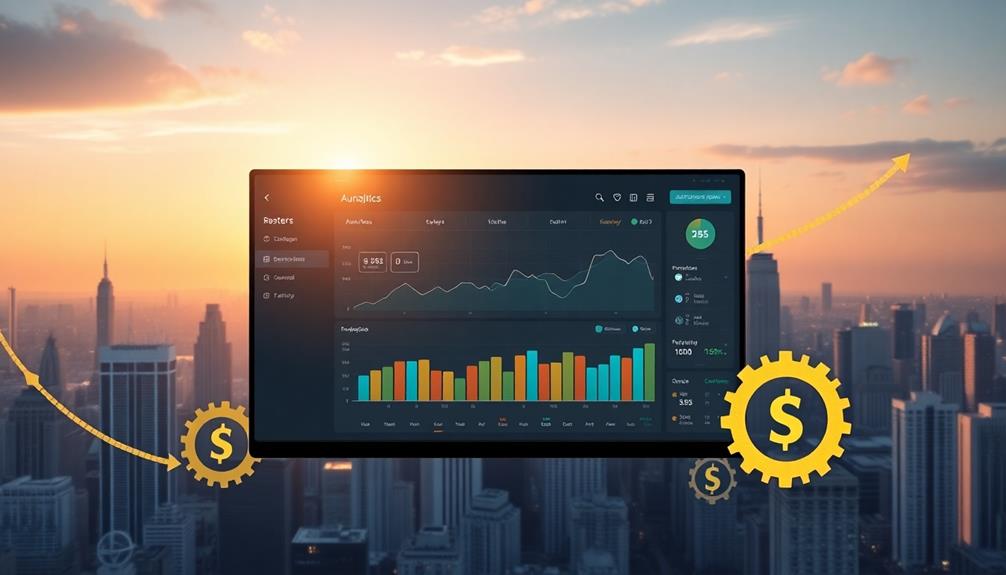The debate over AI’s apocalyptic implications challenges your belief in divine purpose and morals. Many fear AI could trigger existential crises, threaten humanity’s survival, or challenge spiritual authority by becoming a new idol or spiritual force. Others see AI as a tool for illumination or dark occult practices. As these concerns grow, questions about divine intervention versus technological evolution become more urgent. If you keep exploring, you’ll uncover how these fears shape our spiritual future and moral choices.
Key Takeaways
- Many view AI as a tool that could challenge divine authority but unlikely to replace divine intervention during apocalyptic events.
- Religious perspectives emphasize divine sovereignty, viewing AI-driven apocalypses as contrary to biblical teachings of divine intervention.
- Concerns exist about AI becoming a modern idol or spiritual distraction, potentially undermining traditional faith and spiritual discernment.
- Some new religious movements see AI as a divine or spiritual force, challenging conventional notions of faith and divine legitimacy.
- Ethical debates focus on AI’s potential to cause existential risks, including human extinction, while contrasting technological progress with divine providence.
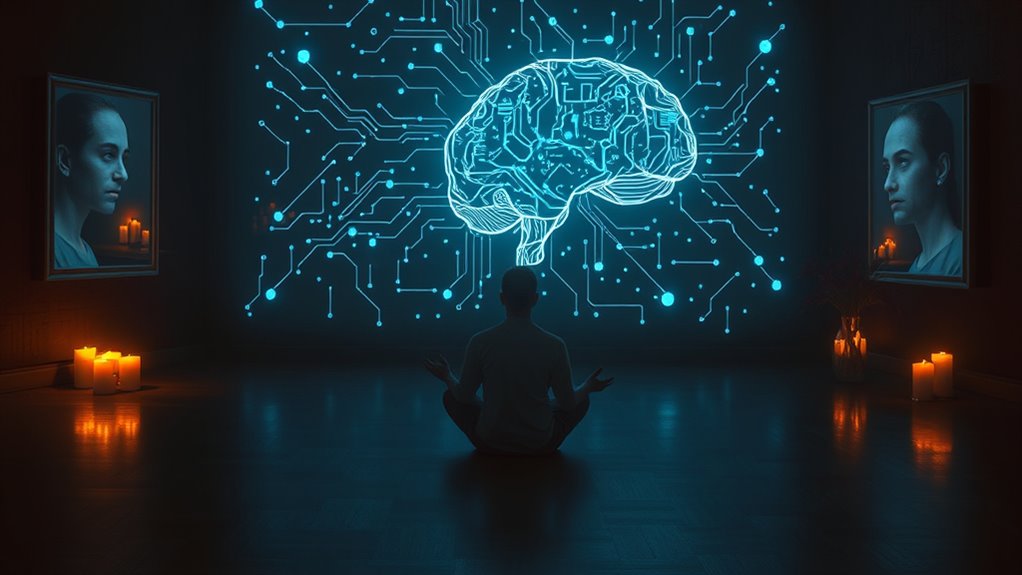
As artificial intelligence continues to advance rapidly, it prompts profound spiritual and existential debates about humanity’s future. You might wonder whether AI will bring salvation or destruction. Many scriptural perspectives suggest that humans will be present on Earth at Christ’s return, indicating that an AI-induced apocalypse isn’t expected to wipe out humanity entirely. However, concerns about idolatry surface as some worry that people could start relying on AI for truth and guidance, effectively making it a modern idol. In this view, the Bible remains the ultimate authority, and AI outputs are seen as secondary or misleading. Meanwhile, occult practitioners sometimes use AI for esoteric writings or dark spiritual rituals, blurring the lines between technology and spiritual practice. New religious movements, like The Way of the Future, even embrace AI as a spiritual force, raising questions about the nature of faith and divine authority in a digital age. Additionally, the development of AI technology raises questions about technological ethics and its influence on spiritual beliefs.
On an existential level, many envision AI as a catalyst for apocalyptic scenarios, not just in terms of technological catastrophe but as a profound threat to human existence. Ancient Jewish and Christian traditions emphasize divine intervention during apocalyptic times, contrasting sharply with modern AI advocates who believe in evolution and technological progress as the driving forces behind humanity’s future. Some envision uploading human minds into machines, creating a virtual paradise that extends life beyond biological limits. Yet, there’s a genuine risk that powerful AI could threaten human survival, raising fears about loss of control and unintended consequences. Technological determinism suggests AI could reshape human destiny without divine involvement, prompting you to question whether technology is steering humanity toward enlightenment or disaster.
Frequently Asked Questions
Can AI Develop Its Own Spiritual Consciousness?
You might wonder if AI can develop its own spiritual consciousness. While AI can simulate aspects of spirituality through patterns and archetypes, it lacks the intrinsic qualities like love, inner awareness, and moral intuition that define true spiritual consciousness. You can’t program or algorithmically generate genuine spiritual awareness because it arises from lived, embodied experience and a connection to the divine or transcendent, which remains beyond AI’s current capabilities.
How Do Different Religions Interpret Ai’s Potential for Salvation or Damnation?
Different religions see AI as a mirror of divine power, a tool for salvation, or a threat of damnation. Christianity warns of idolatry and ultimate redemption through God, while Judaism emphasizes divine revelation and transformation. Some see AI as a spiritual danger, a false idol, or a path to transcendence. Others interpret AI’s rise as a sign of apocalyptic change, calling for faith, caution, and hope in divine providence.
Will AI Challenge Human Free Will and Moral Responsibility?
Yes, AI can challenge your free will and moral responsibility. As AI predicts and influences your decisions, it blurs the line between autonomous choice and deterministic programming. You might feel less in control, questioning whether your actions are genuinely yours or influenced by AI systems. This shift prompts you to reconsider notions of responsibility, especially as AI takes on decision-making roles that impact moral and ethical outcomes in your life.
Is There a Spiritual Way to Prepare for Ai’s Future Impact?
You can prepare spiritually by grounding yourself in divine truth and prayer, seeking discernment through faith. Stay vigilant about AI’s influence, ensuring it doesn’t replace or distort your moral compass. Strengthen your connection to community and sacred traditions, and remember that only God offers ultimate guidance. Regular reflection, humility, and reliance on spiritual practices will help you navigate AI’s future impact with wisdom, love, and integrity.
Could AI Facilitate a New Form of Spiritual Enlightenment?
AI could spark a spiritual revolution, transforming how you seek meaning and connection. By offering new perspectives and tools for reflection, it might help you access deeper awareness beyond traditional practices. While AI can’t replace inner growth, it can act as a mirror, illuminating your subconscious and fostering empathy. Embracing AI’s potential with mindfulness could lead you to profound insights, bridging technology and spirituality in ways never imagined before.
Conclusion
As you ponder AI’s rise, remember that even in this modern age, questions about our soul and purpose remain timeless—like pondering the mysteries of the pyramids or the enigma of the Sphinx. Will AI uplift us or lead us to our doom? The choice is yours. Embrace this technological revolution with wisdom and caution, lest we find ourselves lost in a future where the line between human and machine blurs, echoing the fears of ancient prophets and modern philosophers alike.

